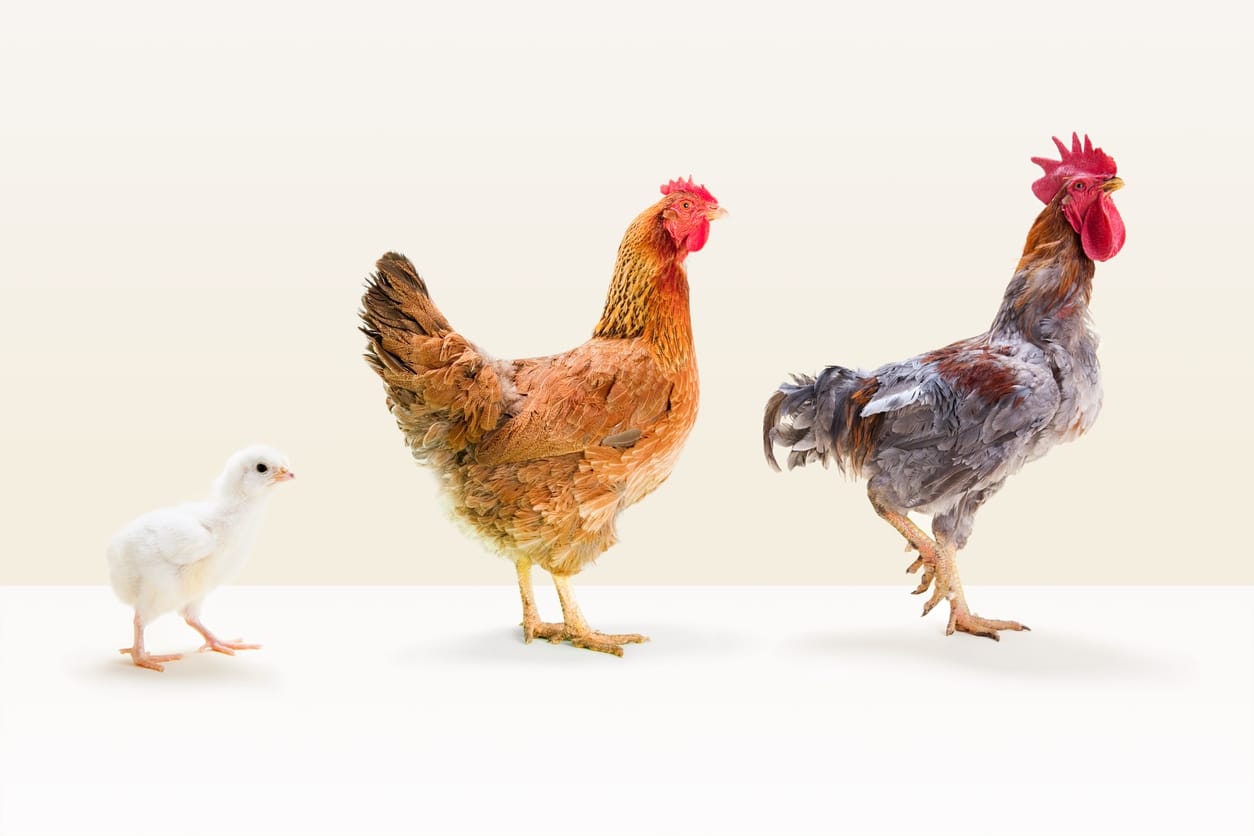If you’re new to the chicken keeper world, you might be wondering, “how do chickens mate?” It can be a helpful topic if you’re hoping to care for more chicks.
So, let’s look at how chickens mate and what you can do to add more chicks in the coop.
How Do You Breed Chickens?
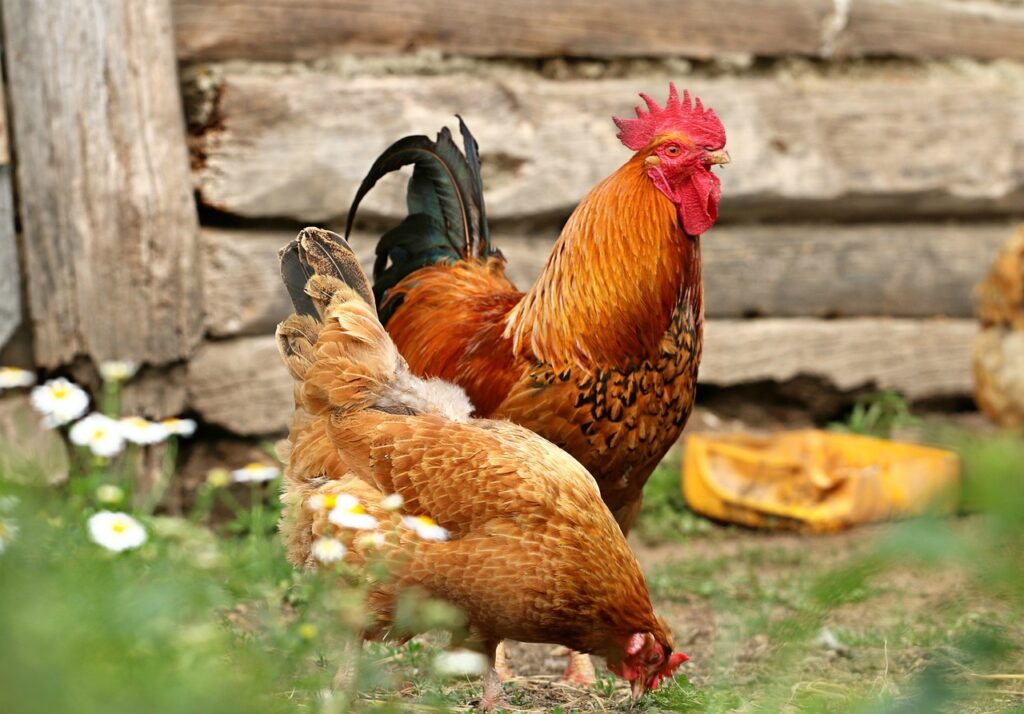
Hens don’t need roosters to lay eggs, but those eggs will be unfertilized and used for human consumption. If you want chicks to hatch from your chickens’ eggs, then all you have to do is expose them to a rooster.
Luckily, you don’t have to interfere much to get chickens to breed. Roosters will naturally seek out hens and court them on their own, leading to them mating and producing fertilized eggs.
Roosters tend to be more dominant and aggressive than hens, depending on the breed. So, consider that before putting a rooster with your hens. If you don’t want fertilized eggs, you don’t have to have any roosters at all.
How Do Chickens Mate?
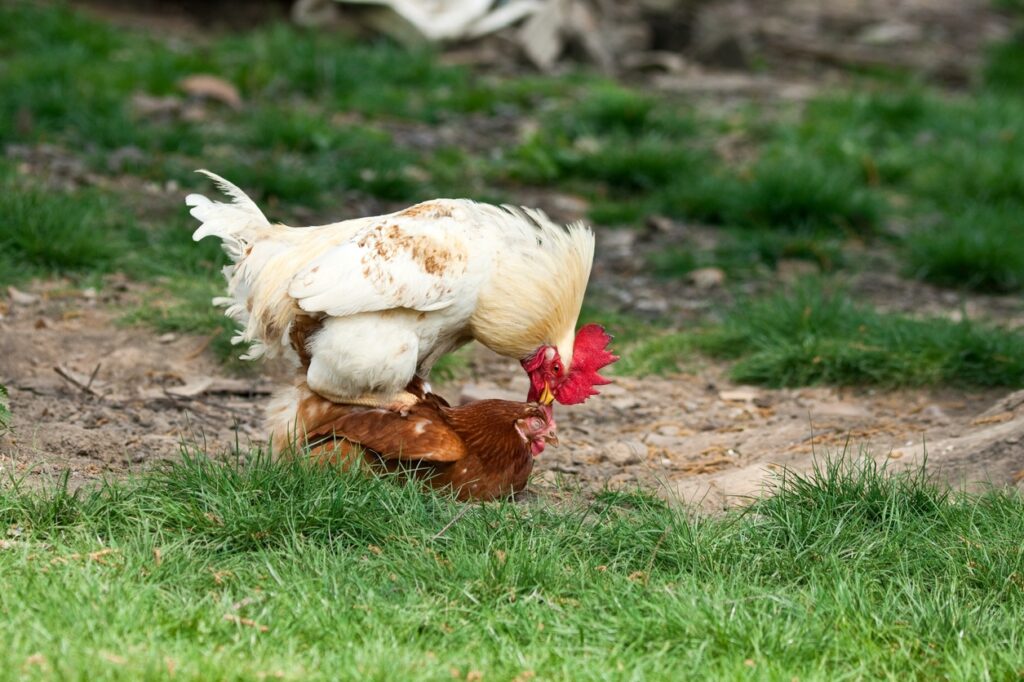
Rooster initiate chicken mating. They have a few different methods to get a hen’s attention. Hens are the most interested in dominant roosters.
The males will start showing their interest in hens by “tid-bitting,” which involves finding tasty pieces of food to give to their favorite hen. This resourceful behavior might help convince a hen to mate with them. Yet, some roosters skip these initial steps and go right into courting, dancing, or even mating.
After showing their interest through food, roosters will perform a mating dance to impress the hens further. Mating behaviors in both chickens and roosters are fueled by hormones.
Courting and Mating Dance
Roosters will often hang around the hen they’re interested in. When they want to mate, they will perform a courtship dance, which usually consists of a rooster circling a hen with his wings outstretched.
During this dance, the rooster may scratch the ground or fight off other roosters to prove his dominance. Yet, the dance isn’t the only deciding factor for the hens.
Hens prefer to mate with roosters who are the best providers and protectors of the group. Usually, this is the largest rooster of the coop, known as the “alpha rooster.” The bigger and stronger a rooster is, the more likely he will be able to find a hen to mate with.
How Does a Rooster Fertilize an Egg?
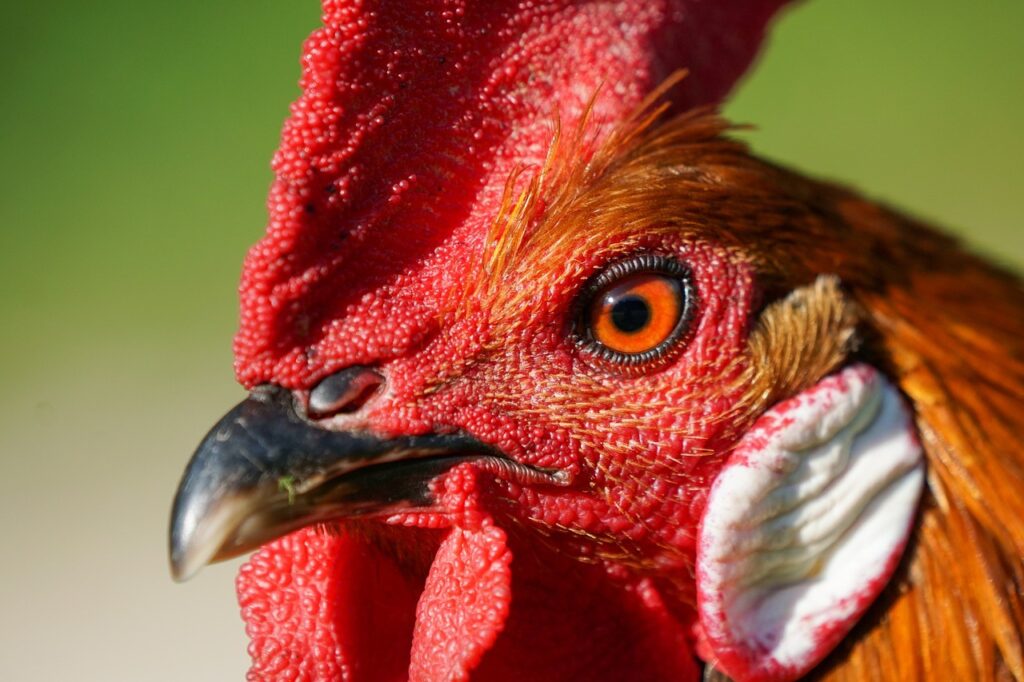
If the hen is interested in mating, she will squat down, allowing the rooster to mount her. Most roosters will grab the comb of the hen while mounting her to balance better. It’s normal for hens to squawk or make other unusual sounds during the process. When the two begin mating, it might look a bit violent and awkward at first, but it’s natural.
Despite looking aggressive, the rooster is usually gentle enough with the hen to not harm her. While mating, the two birds’ cloacas touch, and the male transfers the semen to the female. This process is often called a “cloaca kiss” since no penetration is involved with chicken mating.
The semen will eventually go to the hen’s oviduct, which is how fertilized eggs will be produced. The semen can survive inside the hen’s oviduct for about a month.
Mating only takes about 30 seconds for most chickens. Once the mating process is over, the chickens will shake their feathers and go about their daily lives as if nothing happened.
When Will Baby Chicks Hatch?
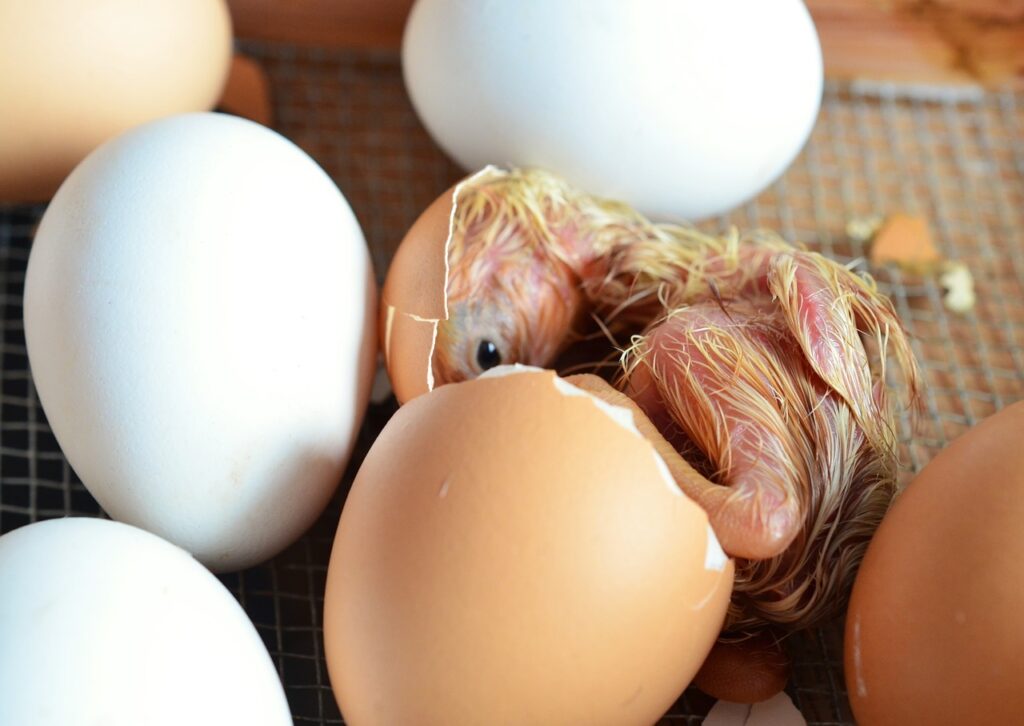
The sperm package that enters the hen’s body usually contains about 5 billion sperm. Hens might not produce fertile eggs immediately, but you should start notice them within ten days of mating.
Hens can store the sperm for several days, so they may lay fertilized eggs even if they’re no longer exposed to a rooster.
Once the eggs are laid, it takes about 21 days for chicks to hatch. Every day in the egg has significant growth for the embryo. Then, the chicks will hatch with wet feathers, which will fluff up shortly after.
Chicks should be kept in a “brooder area” when they’re young, which is a warmed-up room with an infrared lamp. As long as they’re provided with healthy food in that comfortable space, they’ll grow at a healthy pace and eventually be ready to be let out with the other chickens.
Problems with Chicken Mating
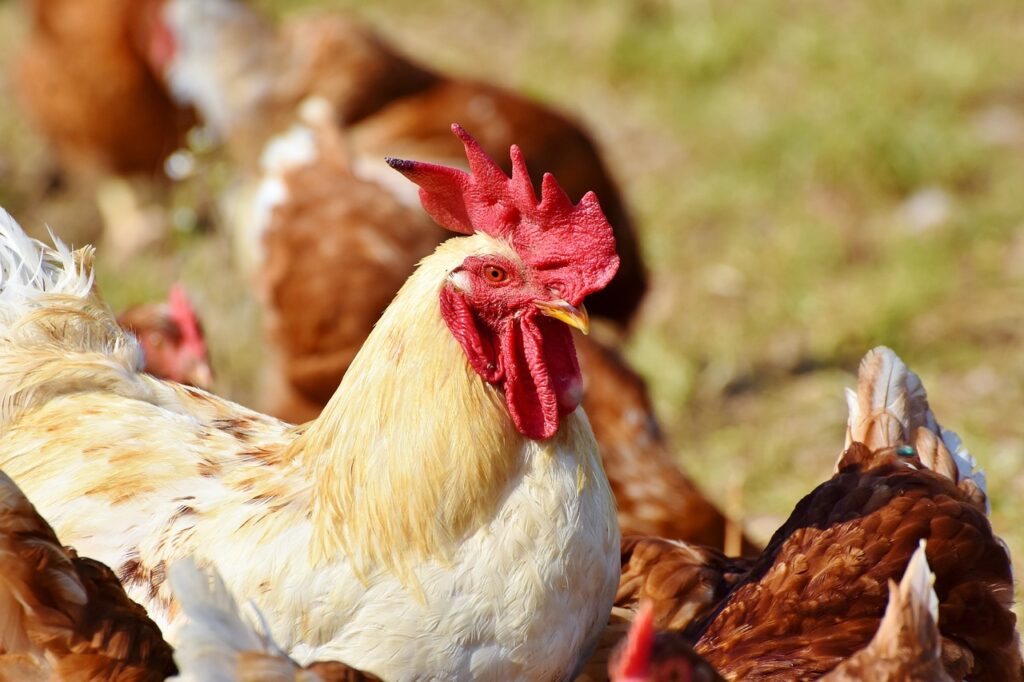
Chickens mating is important if you want to add more hens to your coop. Yet, things don’t always go smoothly. Here are some problems that may arise.
Injuries
Even though chicken mating is usually fast and gentle, some roosters can be too rough. They might cause scratches or feather loss afterwards.
If you notice a hen in rough shape, separate her from the roosters to give her time to heal. Yet, if one rooster is consistently too aggressive when mating, you may also want to remove him from the enclosure.
Chicken saddles are a good way for chickens to breed without the rooster hurting the hen. However, saddles can attract mites and lice, so they should be checked frequently.
Non-Dominant Roosters
On the other hand, some roosters might not be aggressive enough. If a rooster isn’t dominant, hens may be uninterested in mating with him. This is most commonly seen in younger roosters, but they will likely grow out of it as they become adults.
Fluffy Feathers
Chickens with fluffy feathers can make mating trickier. It’s hard for roosters to pass semen to hens if there are too many feathers in the way. Trimming the feathers around a hen’s cloaca can make it easier for roosters to mate with them.
Obesity
Overweight chickens can have fertility problems, making it harder for hens to lay healthy eggs. Try to keep hens active by providing them more space to explore and more toys to entertain them. Obese chickens can still have chicks, but the chances aren’t as good.
What To Do if You Don’t Want Chickens Mating
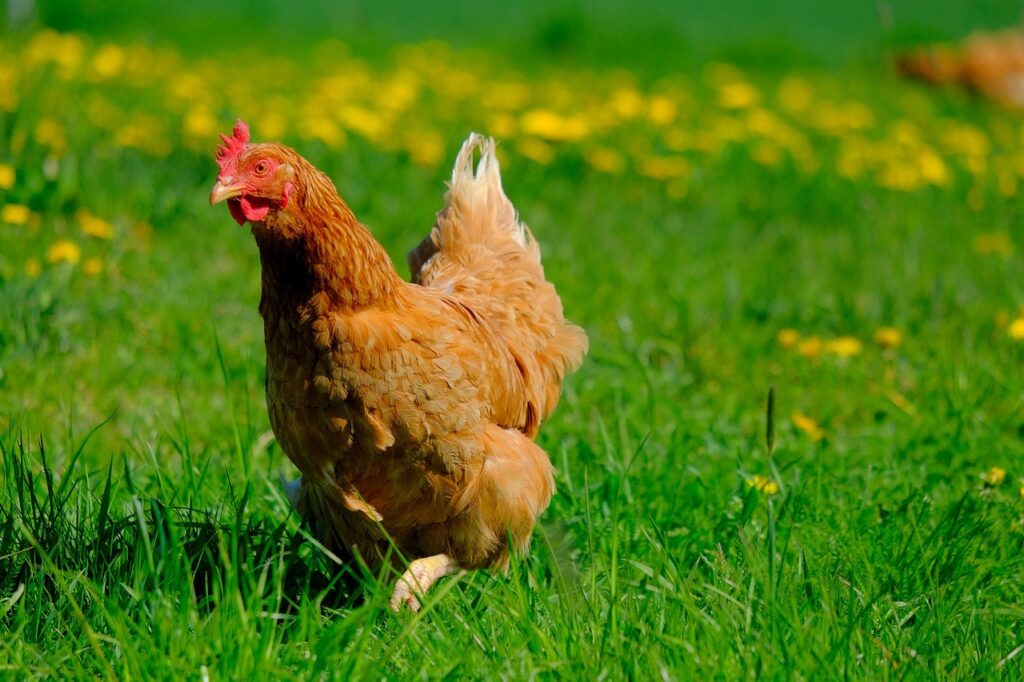
Many people only keep chickens for unfertilized eggs so they can sell them or eat them. Thus, you won’t want your chickens mating if that’s the case.
Mating is natural for chickens, so the only way to prevent it entirely is to separate any roosters from the hens. You don’t need to have any roosters at all if you don’t want to. Hens don’t need to interact with roosters to live a happy, healthy life.
Becoming a Successful Chicken Caretaker
“How do chickens mate?” is a common question among new chicken keepers. If you keep hens and roosters in the same space, you’re sure to find out. Yet, it’s always better to understand situations like this before they occur.
If you’re looking to add more chickens to your coop, having roosters and hens mate is a great way to do so. However, if you’re only looking for edible eggs, it’s best not to have any rooster in the enclosure. Either way is fine, as long as you properly care for all the birds.
